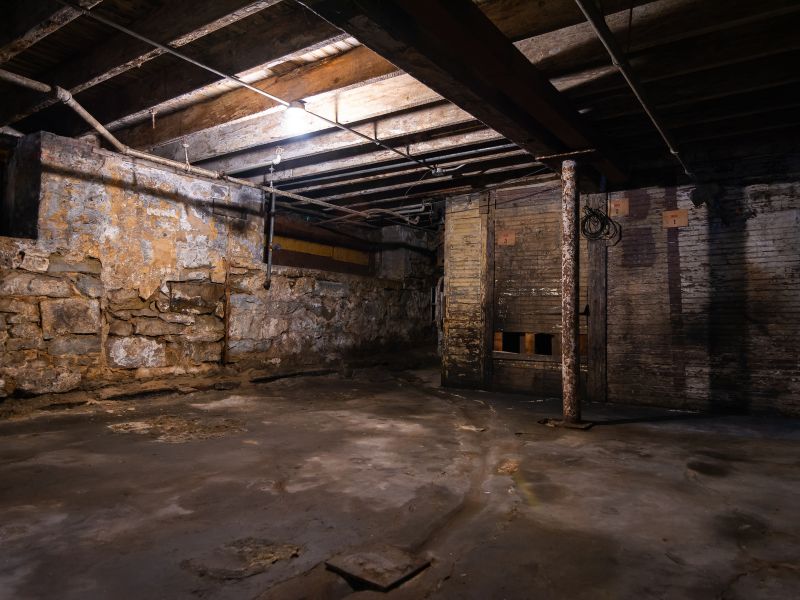The Costs To Consider When Saving Up For A Basement Conversion

There was a long period of time when we completely ignored the usefulness of using basements. Many new homes were built without actually having a basement because of this very fact. However, if you are looking at making use of the space below your home there are some things you should consider to help you know how much you need to be saving up for a basement conversion.
The first thing you need to ask yourself and investigate is whether or not your home is suitable for a basement conversion. You need to ensure that the foundations are strong enough and that there are no gas or water pipes and electric cables underneath the floorboards of your home that can’t be moved. As well as take into consideration if your home is situated in a region with a very high underground water level, as excavation could come with the risk of dampness or flooding.
Once you know for sure that your home is suitable for a basement conversion you can start to plan the work. It is worth keeping in mind that this does not just involve digging a very big hole. You have to spend a great deal of time working out the various needs of your basement, regarding insulation, plumbing, power, artificial or natural light, and ventilation. You also need to have surveys conducted and professional help.
One of the most important stages is basement tanking which is the way that you waterproof walls below ground level. Along with this you will also need to plaster, soundproof, and insulate the walls, and depending on the layout you have planned for the basement, additional doors and/or windows may have to be installed. This will all cost money, but is unavoidable so should be taken into account when you are planning out your budget.
Your basement is going to need lighting and heating. The electric wiring will not be cheap because although most cellars and basements already have wiring, it is not likely to be particularly new unless your property is new. You need to consider if the basement needs to be rewired by a qualified professional electrician. The cheapest way to heat a basement conversion by far is gas, so you will also have to work out the cost of piping, radiators, and any other gas equipment you intend on installing.
One way that you could save a significant amount of money off the total cost of the conversion is if you don’t intend on having a washbasin or toilet installed in the basement. However, it is important that you consider the future uses of the room and space, as you may need to use it as a living area and it might be more cost-effective to have these kinds of things installed from the outset, rather than further down the line after the work has been completed.
As well as all of the above, you should also calculate into the final budget the legal costs of gaining any building and planning permissions. If you missed this out in the initial budgeting only to find out later you needed to pay it out, this might cause delays in getting the work completed.







